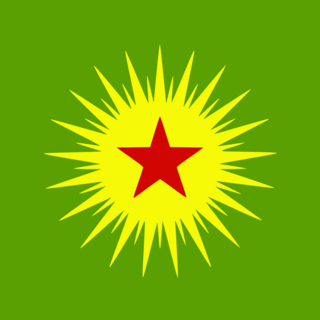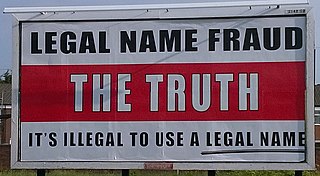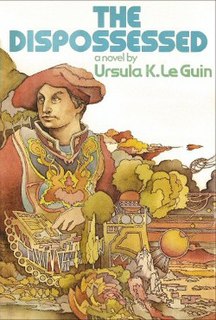 W
WAnarchist criminology is a school of thought in criminology that draws on influences and insights from anarchist theory and practice. Building on insights from anarchist theorists including Pierre-Joseph Proudhon and Peter Kropotkin, anarchist criminologists' approach to the causes of crime emphasises what they argue are the harmful effects of the state. Anarchist criminologists, a number of whom have produced work in the field since the 1970s, have critiqued the political underpinnings of criminology and emphasised the political significance of forms of crime not ordinarily considered to be political. Anarchists propose the abolition of the state; accordingly, anarchist criminologists tend to argue in favour of forms of non-state justice. The principles and arguments of anarchist criminology share certain features with those of Marxist criminology, critical criminology and other schools of thought within the discipline, while also differing in certain respects.
 W
WAnti-capitalism is a political ideology and movement encompassing a variety of attitudes and ideas that oppose capitalism. In this sense, anti-capitalists are those who wish to replace capitalism with another type of economic system, usually some form of socialism.
 W
WDemocratic confederalism also known as Kurdish communalism or Apoism is a political concept theorized by Kurdistan Workers Party (PKK) leader Abdullah Öcalan about a system of democratic self-organization with the features of a confederation based on the principles of autonomy, direct democracy, environmentalism, feminism, multiculturalism, self-defense, self-governance and elements of a sharing economy. Influenced by social ecology, libertarian municipalism, Middle Eastern history, nationalism and general state theory, Öcalan presents the concept as a political solution to Kurdish nationalist aspirations, as well as other fundamental problems in countries in the region deeply rooted in class society, and as a route to freedom and democratization for people around the world.
 W
WThe freeman-on-the-land (FOTL) movement, also known as the freemen-of-the-land, the freemen movement, or simply freemen, is a loose group of individuals who believe that they are bound by statute laws only if they consent to those laws. They believe that they can therefore declare themselves independent of the government and the rule of law, holding that the only "true" law is their own interpretation of "common law".
 W
WPirate utopias were defined by anarchist writer Peter Lamborn Wilson, who coined the term in his 1995 book Pirate Utopias: Moorish Corsairs & European Renegadoes as secret islands once used for supply purposes by pirates. Wilson's concept is largely based on speculation, although he admits to adding a bit of fantasy to the idea. In Wilson's view, these pirate enclaves were early forms of autonomous proto-anarchist societies in that they operated beyond the reach of governments and embraced unrestricted freedom.
 W
WThe Dispossessed: An Ambiguous Utopia is a 1974 utopian science fiction novel by American writer Ursula K. Le Guin, set in the fictional universe of the seven novels of the Hainish Cycle, e.g. The Left Hand of Darkness. The book won the Nebula Award for Best Novel in 1974, as well as winning both the Hugo and Locus Awards in 1975, and received a nomination for the John W. Campbell Memorial Award in 1975. It achieved a degree of literary recognition unusual for science fiction due to its exploration of themes such as anarchism and revolutionary societies, capitalism, and individualism and collectivism.
 W
WThe Revolutions of 1917–1923 was a revolutionary wave that included political unrest and revolts around the world inspired by the success of the Russian Revolution and the disorder created by the aftermath of World War I. The uprisings were mainly socialist or anti-colonial in nature. Many attempted socialist revolts failed to have a long-term impact.
 W
WAndrea Salsedo was an Italian anarchist whose death caused controversy as it was caused by a fall from the Justice Department's Bureau of Investigation (BOI) offices on 15 Park Row in New York City. Depending on the source, his death was either a suicide or a homicide; nevertheless, the case was widely debated both for its unclear nature and for its consequences on the Bureau and was one of the premises of the Sacco and Vanzetti case.
 W
WSquatting in England and Wales usually refers to a person who is not the owner, taking possession of land or an empty house. People squat for a variety of reasons which include needing a home, protest, poverty, and recreation. Many squats are residential, some are also opened as social centres. Land may be occupied by New Age travellers or treesitters.
 W
WSyndicalism is a current in the labor movement to establish local, worker-based organizations and advance the demands and rights of workers through strikes. Most active in the early 20th century, syndicalism was predominant in the revolutionary left in the decade which preceded the outbreak of World War I because orthodox Marxism was mostly reformist at that time, according to the Marxist historian Eric Hobsbawm.
 W
WHenry David Thoreau was an American naturalist, essayist, poet, and philosopher. A leading transcendentalist, he is best known for his book Walden, a reflection upon simple living in natural surroundings, and his essay "Civil Disobedience", an argument for disobedience to an unjust state.
 W
W